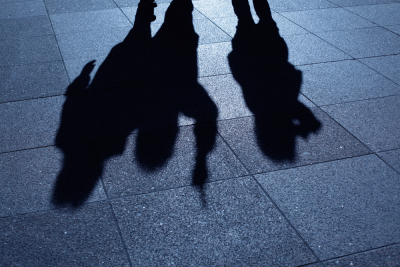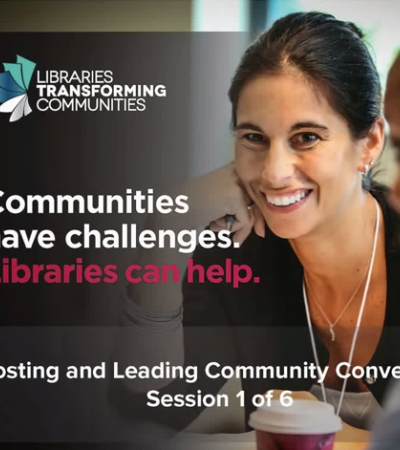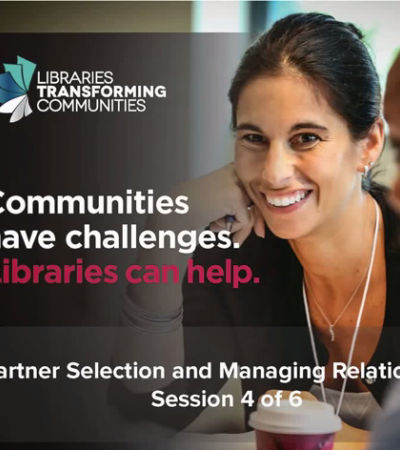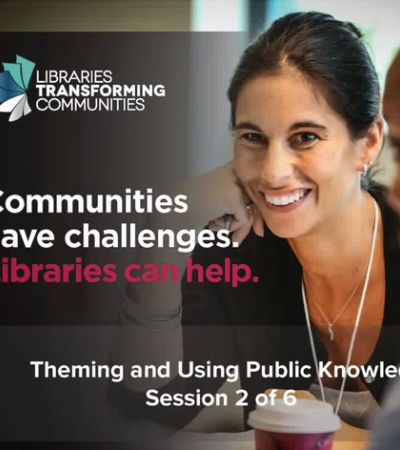The high profile deaths of black men at the hands of police in recent months have reinvigorated a national conversation about racial bias, law enforcement, use of force, and community cohesion. The actions taken by the director of the Ferguson Municipal Public Library, Scott Bonner, during the demonstrations following the Michael Brown shooting last August are exemplary of what a turned-outward library looks like. Scott decided early on to “be a library and keep being a library,” as he told a group of LIS students at the University of Illinois this December.
I didn’t have a chance to see Scott speak at Midwinter, but I've followed his library's work over the past few months. I've watched as Scott worked with teachers to hold ad hoc classes while Ferguson's schools were closed, matching students who came into the library to grade level teachers. I've read how the library provided meeting space for groups doing one-on-one therapy, and how they've created a circulating collection of backpacks filled with stuffed animals and picture books about emotional healing and coping with trauma. Scott and his team listened to their community's aspirations, and responded by leveraging their assets as an organization and going above and beyond the traditional scope of library services.
The Springfield City Library's involvement in
Libraries Transforming Communities (LTC) grew out of a partnership with our local Interfaith Council during a similar period of crisis. We partnered with the group on a peace-building art project after a wave of gun violence in the city, expanding the original scope to include brown-bag conversations and a community forum featuring activists, faith leaders and the police commissioner. Those early conversations opened our eyes to a new method of community engagement that we explored further with the Harwood Institute during our
LTC training.
We came back from that training and began implementing the Harwood approach in the communities served by the library's Mason Square Branch, hosting our first
community conversation in July. Over six months, we heard various themes start to rise out of these conversations—a feeling of alienation from civic institutions and community agencies, a thirst for leaders to rise up within the community, a need for better mentorship opportunities for young people.
Our last conversation was in December, the evening after a grand jury on Staten Island decided not to indict NYPD officer Daniel Pantaleo in the chokehold death of Eric Garner. It was an emotional and eye-opening evening, and participants were candid about their own experiences with racial profiling and police brutality. It is moments like these where the Harwood approach works best, filtering out the library lens from these interactions and allowing us to listen deeply to the concerns of the communities we serve—whether or not there is an easily identifiable role for the library to play in addressing them.
Based on the concerns we heard from the community about violence in the neighborhood, we've partnered with an organization that teaches conflict management workshops and promotes successful interpersonal reactions. The
Alternatives to Violence Project is an international network of trainers and facilitators working in communities to promote conflict resolution and stop violence before it starts. AVP has its roots in Quaker prison outreach, where the focus on small-group interaction and changing personal responses to interpersonal conflict proved to be a powerful tool to reduce recidivism.
In Springfield, we are working with a local group of AVP trainers to host an ongoing workshop cycle at the Mason Square Branch. This ongoing series (one three-day workshop each month) aims to build a cohort of non-violent advocates to promote change in the neighborhood, at once addressing concerns about public safety and the need to cultivate local leaders.
One of the pieces of advice that Scott gives students in the video link above is to “pay attention to your community.” Turning outward can be uncomfortable, and may mean expanding how you define library service. But, as Scott says, “This is what we do. The whole point is to help people. As long as you're thinking about human beings, you're going to be fine.”




